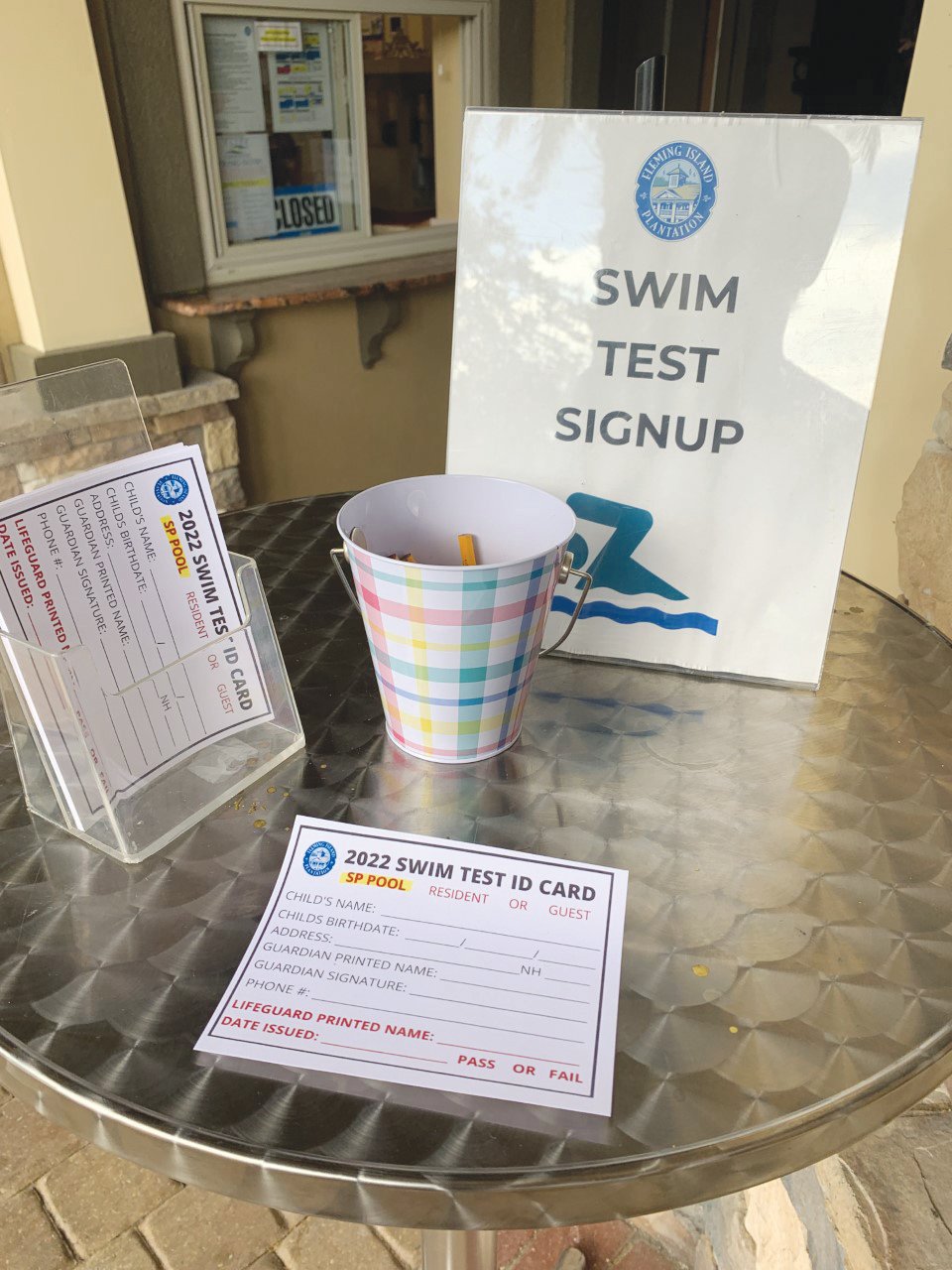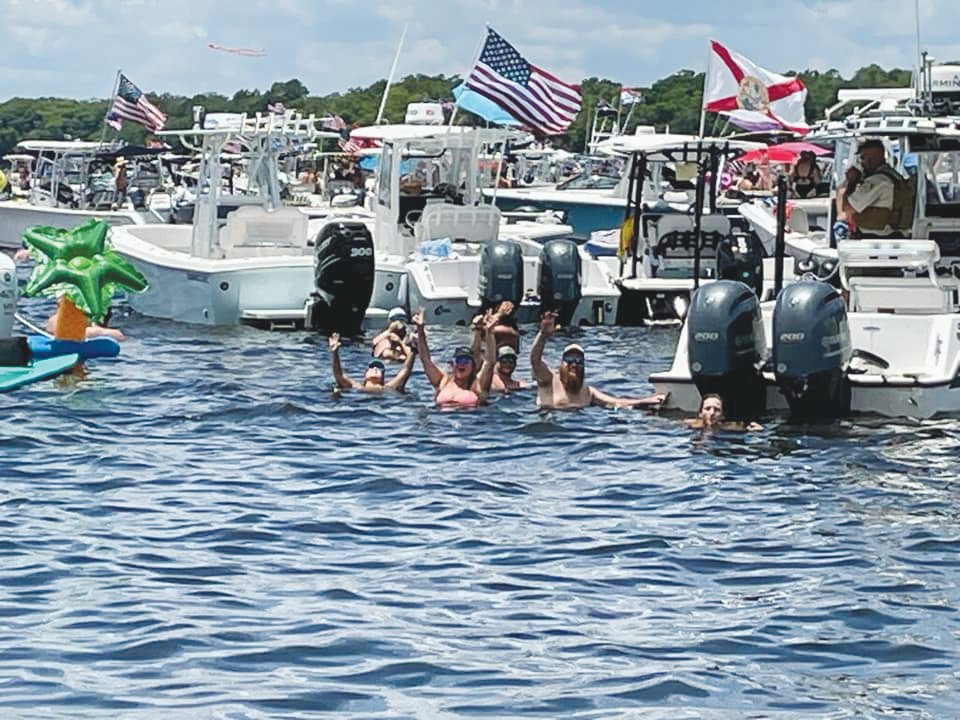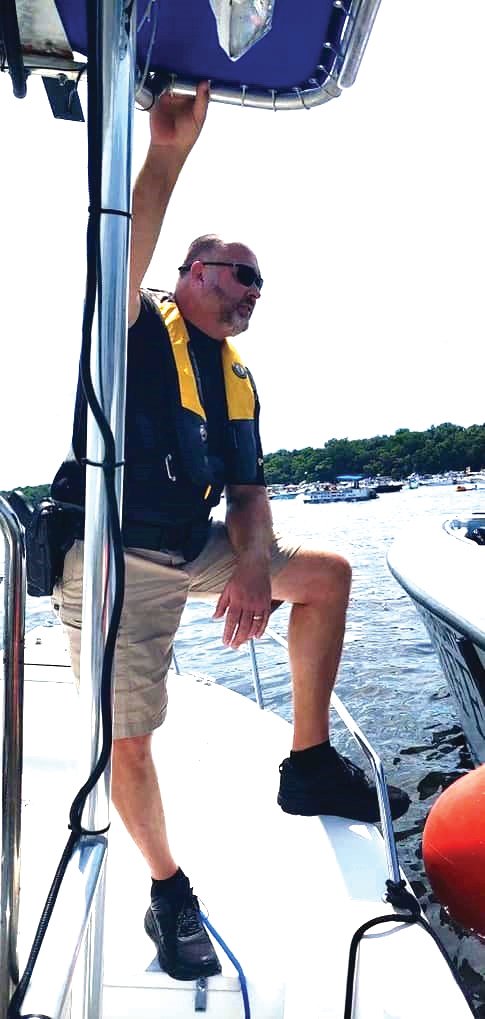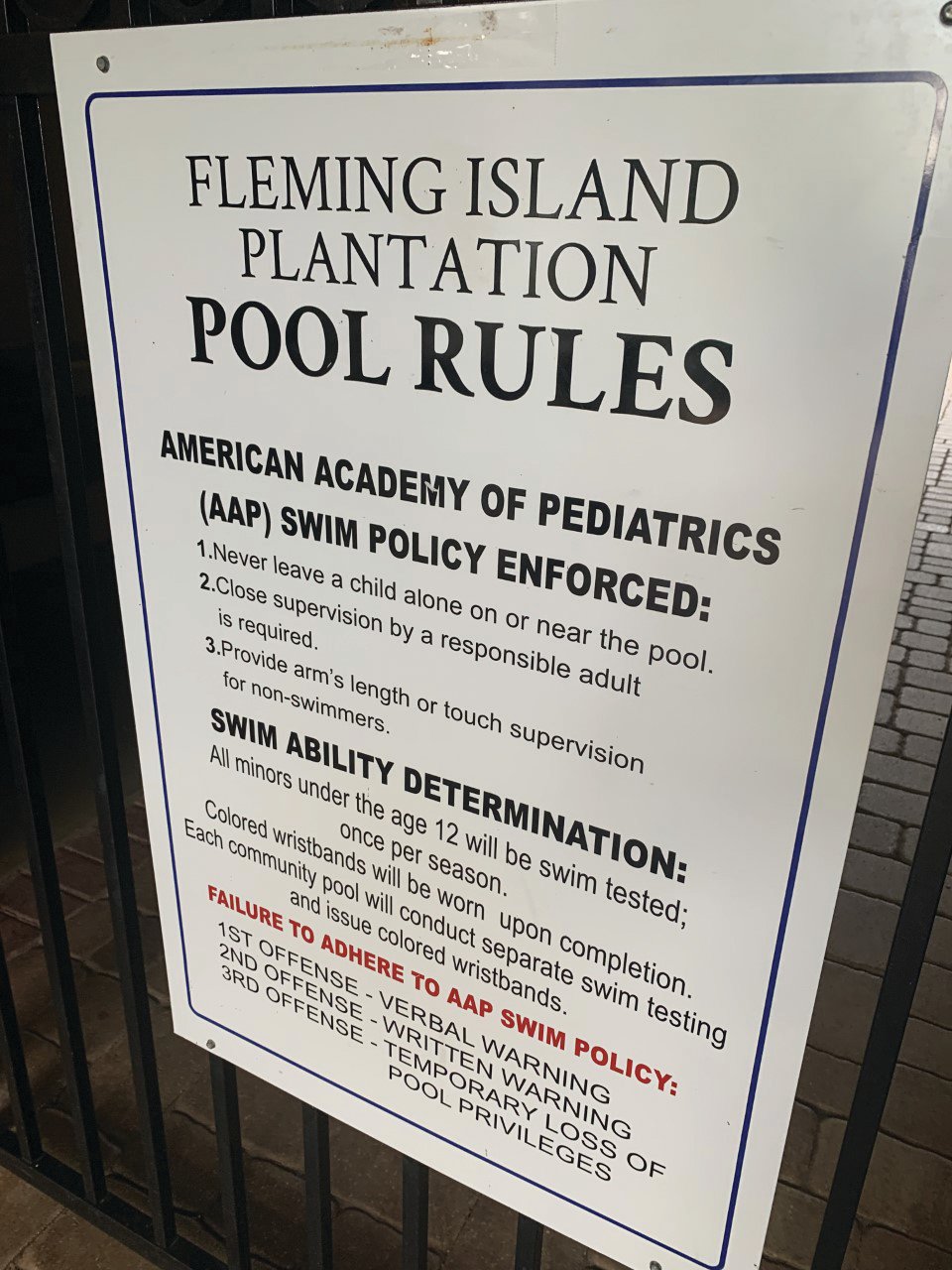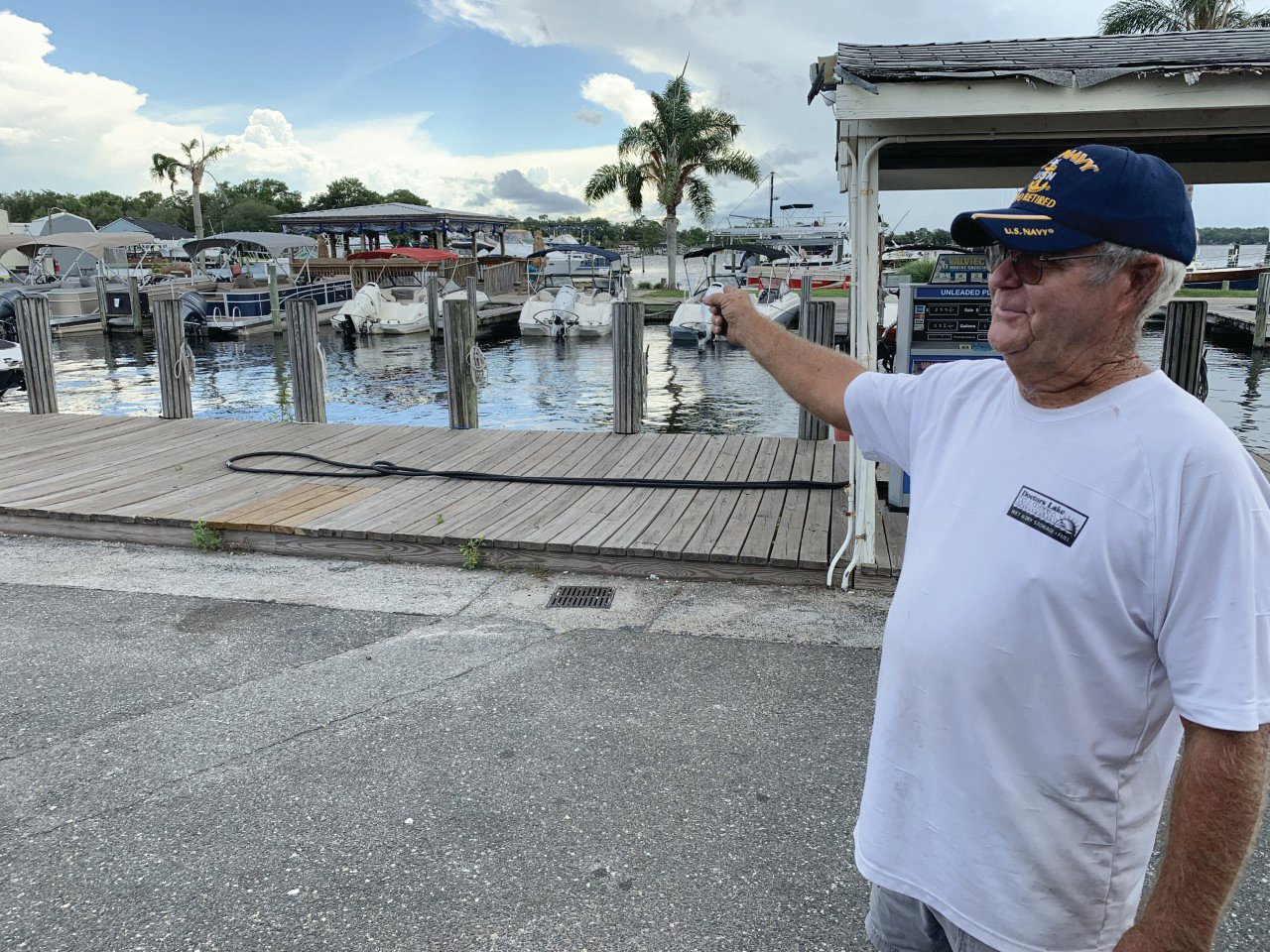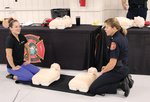Water safety stressed by law enforcement, community members
CLAY COUNTY – Departing Governor’s Creek marina Friday afternoon, Deputy Bill Maher had already seen about 200 boats in a few hours on the St. Johns River.He helms a Clay County …
This item is available in full to subscribers.
Attention subscribers
To continue reading, you will need to either log in to your subscriber account, or purchase a new subscription.
If you are a current print subscriber, you can set up a free website account and connect your subscription to it by clicking here.
If you are a digital subscriber with an active, online-only subscription then you already have an account here. Just reset your password if you've not yet logged in to your account on this new site.
Otherwise, click here to view your options for subscribing.
Please log in to continueDon't have an ID?Print subscribersIf you're a print subscriber, but do not yet have an online account, click here to create one. Non-subscribersClick here to see your options for subscribing. Single day passYou also have the option of purchasing 24 hours of access, for $1.00. Click here to purchase a single day pass. |
Water safety stressed by law enforcement, community members
CLAY COUNTY – Departing Governor’s Creek marina Friday afternoon, Deputy Bill Maher had already seen about 200 boats in a few hours on the St. Johns River.
He helms a Clay County Sheriff’s Office marine patrol unit. His boat hit the wakes at moderate speed on "Boaters Skip Day,” one of the largest gatherings of boaters every year. The sun is oppressive and the water is rough, though Maher said it was quieter earlier in the day.
“You learn not to say the ‘Q’ word,” he says later in the day.
His purpose is to assist people in distress and make sure the boat has the right safety equipment on board such as life jackets, whistles and throwable seat cushions. Maher stays vigilant for many outcomes.
“You get a lot of people swimming around, from boat to boat. I’m looking for people who may be swimming,” Maher said. “They may look OK. There will be a lot of times where I pull up to someone and ask if they’re OK, but it looks like they’re struggling or maybe embarrassed.”
Maher, who has a captain’s license as well as pursuit, life-saving and operational-related course certifications, said the marine patrol isn’t out to harass boaters. He said he’s worked hard to establish a good relationship with the community. His water safety advice sticks to having the necessary equipment, and being courteous to other boaters and law enforcement, who he insists are not there to spoil the party.
While CCSO wants the river’s boaters to have fun safely, going through emergency procedures on the water is a difficult proposition. Maher shared the story of a man who jumped from a boat into the shallow water head first and had to be rushed from the water to land at a hospital. A spine injury on the water complicates the process, he said.
At different points of the river, Maher passes jet skis, pontoons and speed boats. Having the right safety equipment on board is imperative, he said.
“People buy $20,000 play toys, and it makes no sense to not be safe,” he said.
Swimming Pools
Albeit without the expanse of the St. Johns River, safety is a major concern for Fleming Island Splash Park officials. After a few scares with saves and even a near-drowning, the pool reshaped its practices, bringing in Linda Bolger’s Fast Swim Program.
Bolger administered the Centers for Disease Control and Prevention and American Association of Pediatrics guidelines at the pool. There have been zero saves and near-drownings at the pool since the program was instituted, she said.
Lifejackets were a key component. The signage was changed. Children who are not swim-tested have to be kept at arm's length supervision.
“It’s a prevention system for the lifeguards,” Bolger said. “It's a whole different philosophy. By following AAP guidelines, a child never gets in that dangerous situation.”
According to CDC data, Florida has the fifth-highest rate of drownings in the U.S. For Bolger, safe swimming practices have to happen one skill, one pool – and one state at a time.
She said charges are pressed if a child is left in a hot car, but the same can’t be said for a child who drowns near authority figures. Learning to swim is a vital ability early and later in life, she said.
Affordability of swimming lessons varies, though some areas are teaching swimming lessons unconventionally, like in blowup pools near public libraries.
“It’s got to be more consistent. We’ve got to be advocating for zero saves,” Bolger said. “If (children) are four years or older, we can teach them how to swim in 10 lessons utilizing life jackets.”
As far as certifications go, longtime American Red Cross member Skip Cramer urged residents to receive CPR and AED training. An extra 20 seconds or one minute wasted during a hazardous situation could lead to tragedy.
“I always encourage somebody in the household to be CPR and First Aid-trained,” Cramer said.
GCS Marine Patrol
Back to the law enforcement side, Green Coves Springs Police Department Operations Commander Shawn Hines also leads the organization’s marine patrol. He patrols an area from Bayard Point to the train tracks near Black Creek.
“The biggest thing I would say is, law enforcement and (U.S.) Coast Guard, we harp on it all the time, is having the proper safety equipment,” Hines said. “Our boats are on trailers. Right now, if there is no law enforcement on the water, it could be a 20-to-30-minute wait for us to arrive.”
Hines’ role pertained to emergency callouts for distressed boaters and related incidents, though on routine patrols he conducts inspections and looks for unsafe conditions. Hines drew parallels between an officer stopping a vessel and an officer in a motor vehicle pulling over a car.
State law now requires civilian boaters to come to an idle speed when they see a law enforcement boat with lights activated stopping a vessel. Two vessels can be side-by-side and rattled by a wake, he said.
“That is very important for boaters to adhere to. It’s a safety issue,” Hines said. “It smashes the boats together. If somebody has a hand or leg between boats that could be a serious injury situation.”
Boating Safely
Sherri and James Varner visited Doctors Lake Marina earlier this week. They used to own boats and are looking for one again. They said they would get any certifications or equipment necessary.
“We’re going to get any training we need for storms,” Sherri Varner said. "We know the basics. Florida law may change. We need to stay aware and educated.”
Lead Dockmaster Dale Samson, who served 25 years in the U.S. Navy, drives a golf cart around the property, surveying the docked boats. Samson stresses preventative maintenance for pumps, switches and lines. Hours rather than miles are important for maintenance, he tells boat owners. Get insurance via Sea Tow, he said.
“Sea Tow will give you five gallons of gas to get you to the nearest marina,” Samson said.
Follow the requirements for how many people can be in the boat and have approximately 10% more lifejackets than your boat’s capacity, he said. Have an anchor and working whistle.
“The horn doesn’t count,” Samson explained.
Good safety comes in many forms. Samson recalled seeing several younger people on a boat about to refuel. The boat had a short circuit somewhere and caught fire. He said he told them to get off while he put the blaze out.
“They are standing in the boat wondering what to do,” he added. “If you have a boat by a gas pump, that’s on fire, your best bet is to get off that boat.”


